Most nutrient-rich foods provide essential vitamins, minerals, and antioxidants for optimal health and well-being. A well-rounded diet includes fruits, vegetables, whole grains, lean proteins, and healthy fats to ensure a wide range of nutrients.
Additionally, leafy greens like spinach, kale, and collard greens, as well as berries, nuts and seeds, and fatty fish like salmon, are particularly nutrient dense. These foods offer a plethora of vitamins, minerals, and antioxidants that support various bodily functions, boost the immune system, and protect against chronic diseases.
By incorporating these nutrient-rich foods into your diet, you can optimize your health and nourish your body with essential nutrients.
Unleashing The Potential Of Nutrient Rich Foods
Choosing nutrient rich foods is crucial for maintaining a healthy lifestyle. Nutrient density, the amount of essential nutrients per calorie, plays a significant role in fueling our bodies with the necessary elements for optimal performance.
By consuming foods that are high in nutrients, we can enjoy a range of benefits. Such foods provide us with the vitamins, minerals, and antioxidants essential for proper bodily functions, boosting our immune system, and preventing chronic diseases.
Furthermore, nutrient rich foods promote weight management, as they are generally lower in calories but higher in essential nutrients. Incorporating these foods into our diet allows us to feel satisfied while obtaining the necessary nutrients, helping us maintain a healthy weight.
In addition, nutrient-rich choices such as fruits, vegetables, lean proteins, whole grains, and legumes offer a variety of flavors and textures, making our meals enjoyable and satisfying.
| Benefits of Nutrient Rich Foods: |
|---|
| Boosted immune system |
| Prevention of chronic diseases |
| Weight management |
| Improved body functions |
| Enhanced flavors and textures |
Discovering The Essential Micronutrients
Eating a balanced diet that is rich in essential micronutrients is crucial for maintaining optimal health. These key vitamins and minerals play a vital role in supporting various bodily functions. Incorporating nutrient-rich foods into your diet can help ensure that your body receives the necessary micronutrients it needs to function at its best.
1. Vitamin A
Found in foods like carrots, sweet potatoes, and spinach, vitamin A is important for maintaining healthy vision, immune function, and cell growth.
2. Vitamin C
Oranges, strawberries, and bell peppers are packed with vitamin C, which strengthens the immune system, promotes wound healing, and aids in the absorption of iron.
3. Iron
Iron-rich foods like red meat, spinach, and lentils are essential for the production of hemoglobin, which carries oxygen to the body’s cells.
4. Calcium
Dairy products, tofu, and leafy greens are excellent sources of calcium, which is crucial for maintaining strong bones and teeth.
5. Vitamin D
Fatty fish, fortified dairy products, and sunlight exposure are key sources of vitamin D, which is essential for calcium absorption and bone health.
6. B Vitamins
Foods like whole grains, legumes, and leafy greens provide B vitamins, which support energy production, brain function, and the formation of red blood cells.
Eating a variety of nutrient-rich foods ensures that you receive these essential micronutrients, helping to promote optimal health and well-being.
The Nutritional Powerhouses: Vegetables And Fruits
Discover the nutritional powerhouses – vegetables and fruits, the most nutrient-rich foods that provide essential vitamins, minerals, and antioxidants for a healthy lifestyle. These vibrant and colorful natural sources of nutrition are a must-have for maintaining overall well-being.
Exploring The Wide Range Of Nutrients Found In Vegetables
Vegetables are an essential part of a healthy diet as they are packed with a wide range of nutrients that are vital for our well-being. With their vibrant colors and flavorful taste, vegetables offer a multitude of health benefits. They are rich in vitamins and minerals that support various bodily functions, including immune and digestive health. Leafy greens like spinach and kale are particularly nutrient-dense, providing an abundance of fiber, iron, and antioxidants. Root vegetables such as carrots and sweet potatoes are high in beta-carotene, a powerful antioxidant that converts into vitamin A in the body. Cruciferous vegetables like broccoli and cauliflower contain sulforaphane, a compound known for its anti-inflammatory and antioxidant properties. By incorporating a variety of colorful vegetables into our meals, we can ensure we are receiving the nutritional powerhouses required for optimal health.
Nutrient Dense Fruits That Provide A Variety Of Health Benefits
Fruits are also excellent sources of nutrients and offer a delicious way to meet our daily vitamin and mineral requirements. From berries rich in antioxidants to citrus fruits packed with vitamin C, there is a vast variety of fruits to choose from. Apples are a great source of fiber and important phytochemicals that contribute to heart health, while bananas provide essential potassium and vitamin B6. Oranges are known for their immune-boosting properties due to their high vitamin C content. Watermelon, with its hydrating and refreshing properties, is an excellent source of lycopene, an antioxidant linked to heart and eye health. By incorporating a variety of nutrient-dense fruits into our diet, we can enjoy their health benefits while satisfying our taste buds.
Harnessing The Power Of Protein-rich Foods
Protein’s crucial role in growth, repair, and overall well-being
The power of protein-rich foods cannot be overstated. Protein plays a vital role in the growth and repair of tissues, making it essential for overall well-being. It is especially important for those following active lifestyles or engaging in regular exercise.
| Dietary Preference | Nutrient Rich Protein Sources |
|---|---|
| Vegan | Legumes (such as lentils, chickpeas, and black beans), quinoa, tofu, tempeh |
| Vegetarian | Dairy products (like Greek yogurt and cottage cheese), eggs, nuts, seeds |
| Meat Lover | Lean meats (such as chicken breast and turkey), fish (like salmon and tuna), lean beef, eggs |
| Pescatarian | Fish (rich in omega-3 fatty acids), dairy products, eggs, legumes |
Adding protein-rich foods to your diet not only helps in meeting your nutritional needs but also provides a feeling of fullness, making it easier to manage weight. So, regardless of your dietary preference, there are plenty of options available to ensure you get the proper protein intake for a balanced and healthy diet.
Unveiling The Potential Of Whole Grains
Understanding the benefits of whole grains for a nutrient rich diet is essential for incorporating them into meals and enhancing nutrition.
Whole grains are a powerhouse of essential nutrients, offering a wide range of health benefits. They are rich in fiber, vitamins, and minerals such as iron and magnesium. These nutrients play a crucial role in supporting overall health and well-being, promoting proper digestion and a healthy heart.
Including whole grains in your daily diet can help reduce the risk of chronic diseases including diabetes and obesity. They are also known to provide long-lasting energy and keep you feeling fuller for longer periods, supporting weight management goals.
Some popular whole grain options include quinoa, brown rice, oats, and whole wheat. Incorporating these grains into a variety of meals, such as salads, stir-fries, and breakfast bowls, can add a delicious and nutrient-rich twist to your diet.
Plant-based Superfoods For Optimal Health
Plant-based superfoods are packed with essential nutrients that can contribute to optimal health. These nutrient-dense foods are excellent additions to a balanced diet and can help improve overall well-being. Incorporating these superfoods into your daily meals can offer numerous health benefits.
Firstly, dark leafy greens such as spinach, kale, and Swiss chard are rich in vitamins A, C, and K, as well as minerals like iron and calcium. They are also high in fiber, promoting healthy digestion.
Secondly, berries such as blueberries, raspberries, and strawberries are loaded with antioxidants and phytochemicals that provide protection against cellular damage and inflammation.
Nuts and seeds like almonds, walnuts, chia seeds, and flaxseeds are excellent sources of healthy fats, protein, and fiber. They can help maintain heart health and support brain function.
Legumes, including beans, lentils, and chickpeas, offer a good dose of plant-based protein along with fiber, vitamins, and minerals. They also contribute to maintaining healthy cholesterol levels.
Lastly, whole grains like quinoa, brown rice, and oatmeal provide complex carbohydrates, fiber, and B vitamins, making them a great energy source and aiding in digestion.
Incorporating these superfoods into your diet can help you achieve optimal health and vitality. Remember, balance is key, so aim for a varied and diverse diet to ensure you receive a wide range of nutrients.
The Unsung Heroes: Healthy Fats And Oils
The importance of healthy fats for overall health and well-being cannot be overstated. While they may have received a bad reputation in the past, it is now widely recognized that incorporating nutrient-rich oils and fats into your diet offers numerous health benefits. These oils and fats provide essential fatty acids, such as omega-3 and omega-6, which play a crucial role in brain function, heart health, and the development of the body’s cells.
There are several oils that are particularly nutrient-rich and beneficial for our bodies. Olive oil, for example, is high in monounsaturated fats, which have shown to reduce the risk of heart disease. Avocado oil is another great option, as it contains high amounts of oleic acid, which can help lower cholesterol levels. Coconut oil is rich in medium-chain fatty acids, which are easily digested and can boost metabolism.
When it comes to incorporating healthy fats and oils into your diet, it is important to choose high-quality, unrefined options. These oils and fats can be used for cooking, dressing salads, or even as a dip for bread. By making simple swaps in your cooking and eating habits, you can reap the benefits of these unsung heroes and take a step towards a healthier life.
Nourishing From Within: Hydration And Nutrient Dense Beverages
Proper hydration is essential for maintaining optimal health. Adequate hydration allows our body to function efficiently and supports various bodily functions. Water is the primary source of hydration, but there are also other nutrient-dense beverages that can help us stay hydrated while providing additional health benefits. These beverages are packed with essential vitamins, minerals, and antioxidants that nourish our body from within.
| Beverage | Benefits |
|---|---|
| Green tea | Rich in antioxidants and can boost metabolism |
| Herbal tea | Offers various health-promoting properties depending on the herbs used |
| Coconut water | Naturally hydrating and contains electrolytes |
| Vegetable juice | Packed with vitamins, minerals, and phytonutrients from various vegetables |
| Fruit smoothies | Provide hydration, fiber, and essential nutrients from fruits |
By incorporating these nutrient-dense beverages into our hydration routine, we can not only quench our thirst but also support our overall health. Remember to choose beverages that are low in added sugars and artificial additives to maximize their benefits. Stay hydrated, stay healthy!
Frequently Asked Questions On Most Nutrient Rich Foods
What Are The Most Nutrient-rich Foods?
Foods that are considered the most nutrient-rich include dark leafy greens, berries, fatty fish, nuts and seeds, and whole grains. These foods are packed with vitamins, minerals, fiber, and antioxidants which are vital for maintaining overall health and well-being.
How Can Nutrient-rich Foods Benefit My Health?
Nutrient-rich foods provide essential nutrients that support various body functions, boost the immune system, protect against chronic diseases, support healthy digestion, and promote a glowing complexion. Incorporating these foods into your diet can help you maintain a healthy weight and reduce the risk of developing numerous health conditions.
Can Nutrient-rich Foods Help With Weight Loss?
Yes, nutrient-rich foods can play a significant role in weight loss. These foods are low in calories and high in fiber, which promote feelings of fullness and satiety. Additionally, they provide the necessary nutrients for the body to function optimally, preventing nutrient deficiencies that can hinder weight loss efforts.
Incorporating these foods into a balanced diet can support long-term weight loss.
Conclusion
Overall, incorporating nutrient-rich foods into your diet is essential for optimal health and wellbeing. From leafy greens to fatty fish, these foods provide a plethora of vitamins, minerals, and antioxidants that nourish your body. By making conscious choices and diversifying your meals, you can ensure that you’re reaping the benefits of these nutritional powerhouses.
So, why wait? Start including these foods in your everyday meals and experience the positive impact they can have on your overall health and vitality.

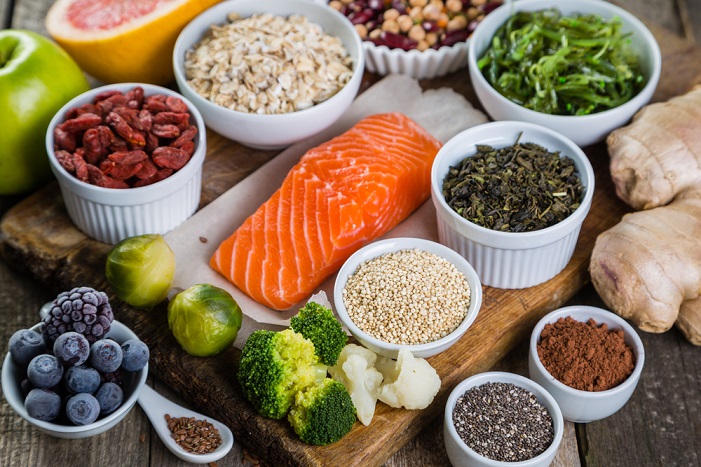
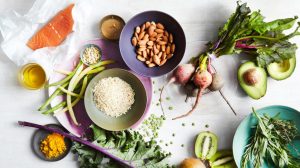

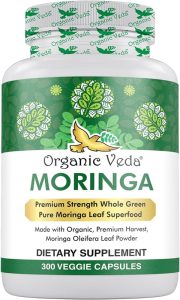



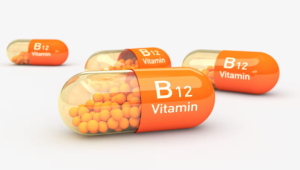




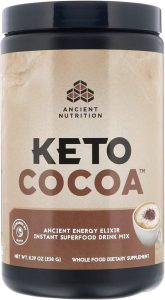

Be First to Comment